Memphis has not been considered a bicycling haven. How it's changing, from safety to access
In the United States, bicycles are becoming an ever more popular form of transportation and recreation. In 2022 over 54 million Americans rode a bike, making it the third most popular outdoor activity after running and fishing. Yet Memphis falls behind the rest of the country.
On the surface, Memphis has many issues that prevent bike culture from thriving. Bike lanes are poorly maintained, pedestrian deaths are higher than in many major cities, and there is little funding for improvements.
But two Memphis professionals heavily involved in the cycling world say that's not the full picture. They say cycling in Memphis is amazing, and it can get even better.
The stats don't lie... or do they?
A study released in July by real estate site Clever ranked Memphis as the least bike-friendly city in the nation. It found that Memphis had a 21% higher cyclist fatality rate than the average, far fewer rental shops and docking stations than most US cities, 78% fewer bike trails than the average community and the lowest level of interest in cycling measured in the nation.
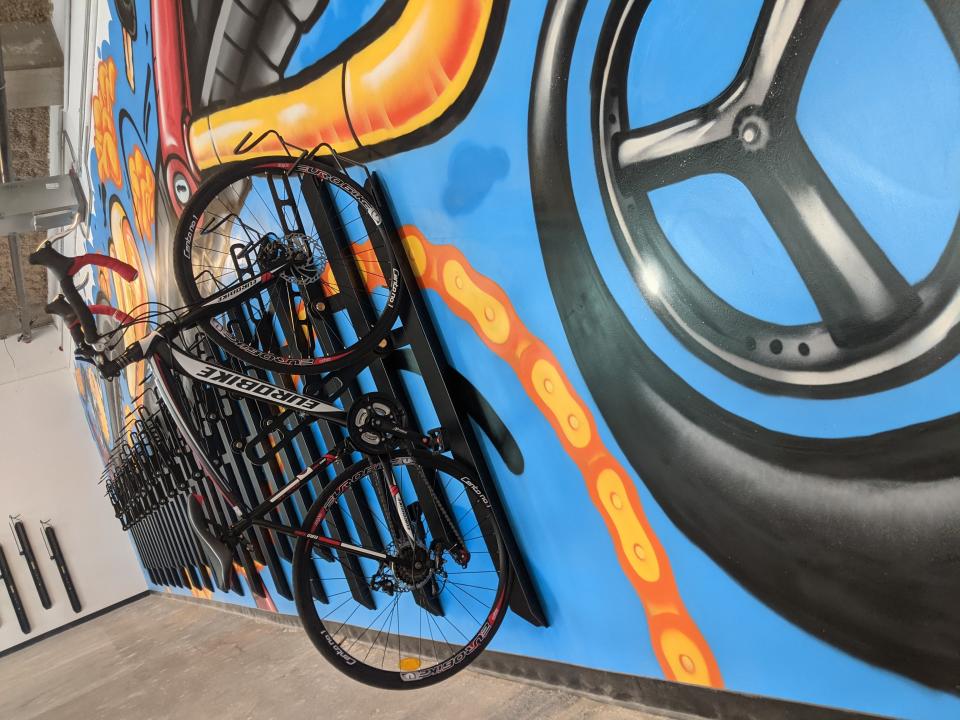
It’s a self-perpetuating cycle (no pun intended) — a higher fatality rate means lower interest, lower interest means less and worse infrastructure created, worse infrastructure means more fatalities, and so on. But while the numbers are worrying, statistics don’t always tell the full truth.
“The parameters they use aren't really fair for Memphis,” said Tulio Bertorini, president of the Memphis Hightailers Bicycle Club and the Memphis Hightailers Foundation. "The humidity in Memphis is crazy."
Bertorini said that for most of the year, cyclists trying to commute to work in the heat of the day will get there soaked in sweat.
"Your office probably doesn't have showers, so it's not like you can load up a backpack and then show up to work, and then shower," he said. "And does your workplace have a good place to lock it up?”
The Hightailers Foundation works with city officials to make improvements in spots like the intersection of Walnut Grove and Farm roads, where one cyclist was killed and another injured in 2020. Bertorini said construction of safety measures at that intersection will begin this fall.
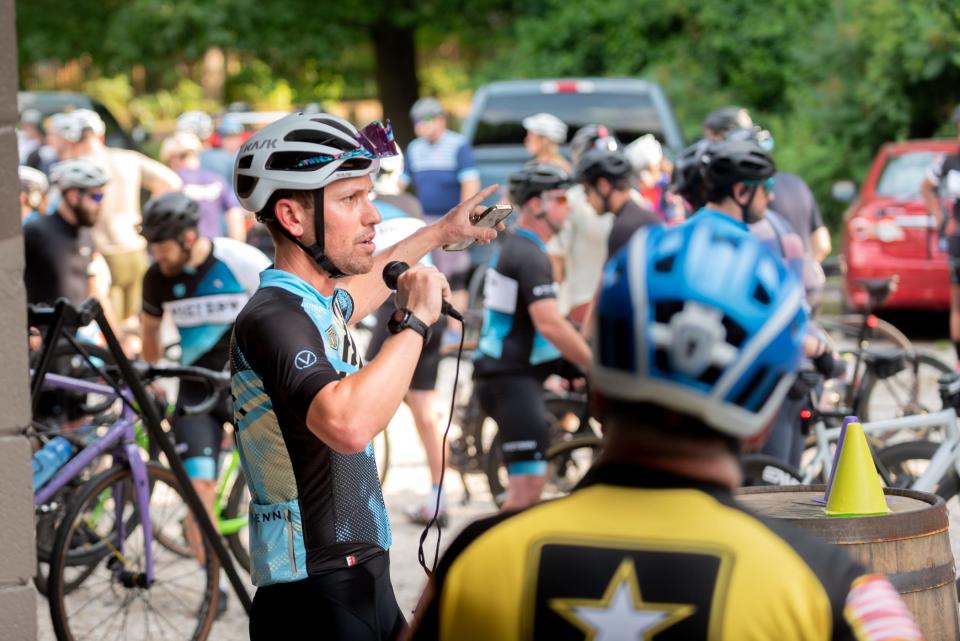
It’s the impersonal nature of statistical rankings that bothers Victory Bicycle Studio owner Clark Butcher. He’s certain he can convince any naysayer that Memphis is an excellent place to bike.
“Let me take somebody for an hour-long ride,” Butcher said confidently. “I'm gonna make you fall in love with Memphis and fall in love with cycling, and I guarantee our ranking on that list changes.”
The complete confidence Butcher possesses comes from a lifetime of experience in the industry and in Memphis. Butcher started running at age seven, competing in triathlons at age nine and started working in bike shops by the time he was 14. After returning home from college, he opened Victory in 2010. His passion for his business and the sport is undeniable.
“Some people do cyclebar, some people do yoga. Man, this is my therapy,” Butcher said. “And I try to really introduce it to folks as that, like, your day will get better if you ride first. Your life will get better if you ride consistently.”
Contrary to what statistics show, Butcher sees a city with a thriving bike culture that continues to grow in popularity every year.
“Activity breeds activity,” he said. “The biggest group rides (when Butcher began training a kid) would maybe have 30 people. Now, I don’t care if it’s 100-something degrees outside...there will be three to four group rides across the city, that will all bring anywhere from 30 to 80 people. (Bike culture) has grown tremendously.”
That growth has brought other challenges to the forefront.
The problem with bike lanes
Memphis’s bike infrastructure is minimal and fractured, with 78% fewer bike trails than the average U.S. city. Many are unmaintained and unsafe.
“There are a lot of times that I advise my customers not to ride in the bike lane,” Butcher said. "And that's because that's where all the debris, trash and mud… gets swept into.”
According to Will Ezzell, bikeway and pedestrian program coordinator for Memphis’s Bikeway and Pedestrian Program, multiple projects are in development and the number of lanes isn’t the problem.
“We've got over 300 miles of bike facilities existing in Memphis already, and we average adding 21 miles of new bike facilities every year since 2010," he said.
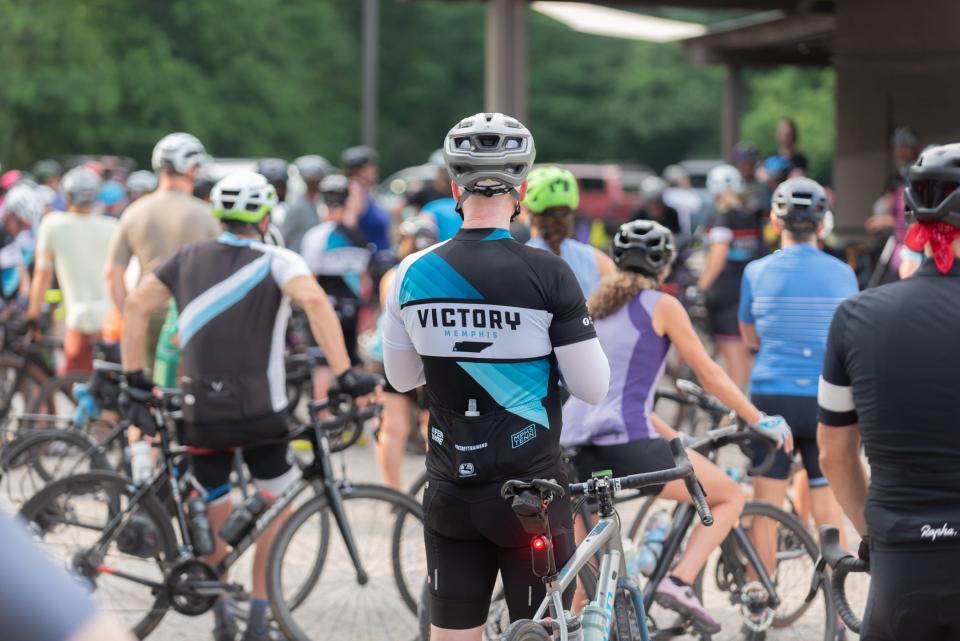
While adding lanes is never a bad thing, many leave a lot to be desired, between debris, visibility, safety and spacing. Bertorini used the lanes on Appling Road as an example.
“The bike lane there is not a standard bike lane,” he said. “It is super narrow. Like cyclists can't fit in it if they tried.”
Butcher’s time in other U.S. cities with rich cycling cultures has given him perspective on what Memphis could be emulating.
“Portland has done (bike lanes) to where it's a different paint,” he said. “So it's incredibly visible. It is a green bike lane. It's even an abrasive paint, so it's non-slip, it's gritty, it's safer to ride on. There's timers so that if you're in the bike lane, you essentially make most every single light. So the light sequences are catered to the bikers. It's brilliant.”
Safety, awareness, funding
Transforming a city ranked third in the nation for pedestrian fatalities into one that's safe for cyclists and pedestrians alike is no small feat, especially in a sprawling city like Memphis where infrastructure is designed to get cars from one place to the other as quickly as possible. But investing in infrastructure is expensive, and improvements alone won’t entirely solve the problem.
“You need infrastructure and awareness,” Ezzell said. “Dedicated infrastructure is obviously necessary for the day-to-day purposes that people have, like going to work or maybe riding on the Shelby Farms Greenline. But having awareness, I think, is the real key.”
In March, the city launched a year-long awareness campaign to do just that. The Getting There Together Campaign aims to show that it is drivers, not pedestrians, who need to adjust their driving behavior to create safer roadways. It looks to eliminate stigmas around cyclists; for example, the belief that they take up valuable space on the road and slow down commutes.
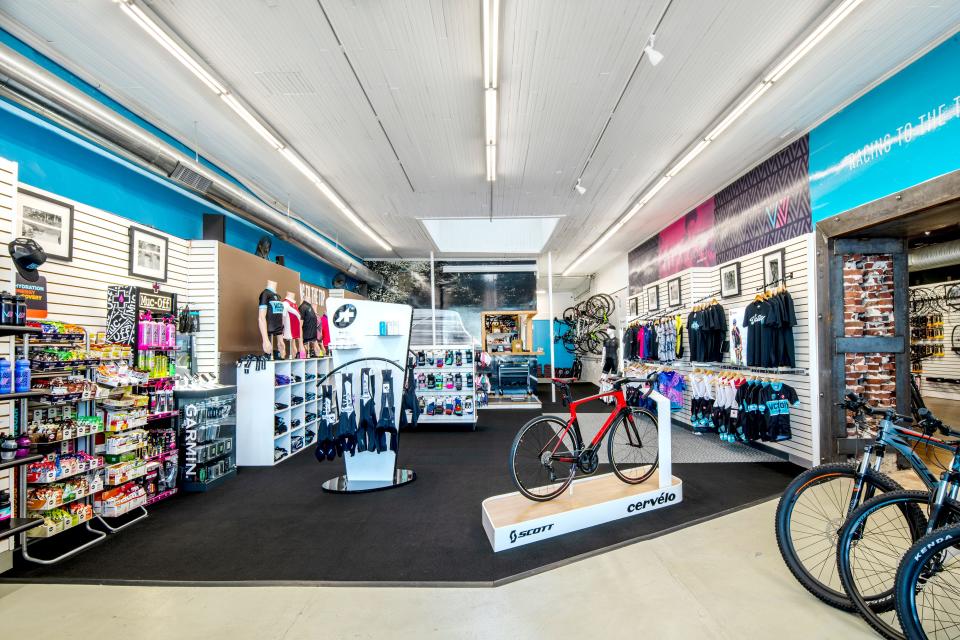
The campaign also raises general awareness about extreme statistics, like a 127% increase in Memphis traffic fatalities since 2017, in the hope that drivers think twice before speeding through a neighborhood or crowded city street.
Currently, lanes are only added when a road needs repaving, a decision the city made under AC Wharton in 2010. Memphis’s bikeway network map shows a multitude of isolated bike lanes, cut off from the larger network. Due to the 2010 policy, instead of first creating links to the greater network, roads only receive lanes when they’re in need of repaving, creating paths that go unused and unmaintained.
“The problem is, if you don’t maintain those little sections, and then two years later they’re connected, they’ve already gotten a stigma not to ride in them… because of glass and debris,” Butcher said. “I'm not here to argue that they're done wrong. I'm just saying maintain what's been put in.
“We would love for the city to have a dedicated budget to make these improvements that are needed because right now they just get either funding from grants or as part of building a new road."
Learning to ride
Learning to ride a bike may seem like a universal experience for children, but that’s not actually the case. A 2013 study from YouGov found that 6% of Americans never learned how to ride a bike, and 51% never ride anyway.
Enter the Downtown Memphis Commission’s Beginner Biking program. The course debuted over the summer as a new free program for adults who have never ridden a bike, designed to teach bike-riding skills as well as how to ride safely on the road.
Lauren Bermudez, transportation and mobility program manager for the DMC, manages the beginner biking course. She wanted to create a program that would complement Explore Bike Share, a bike rental service in Downtown and Midtown.
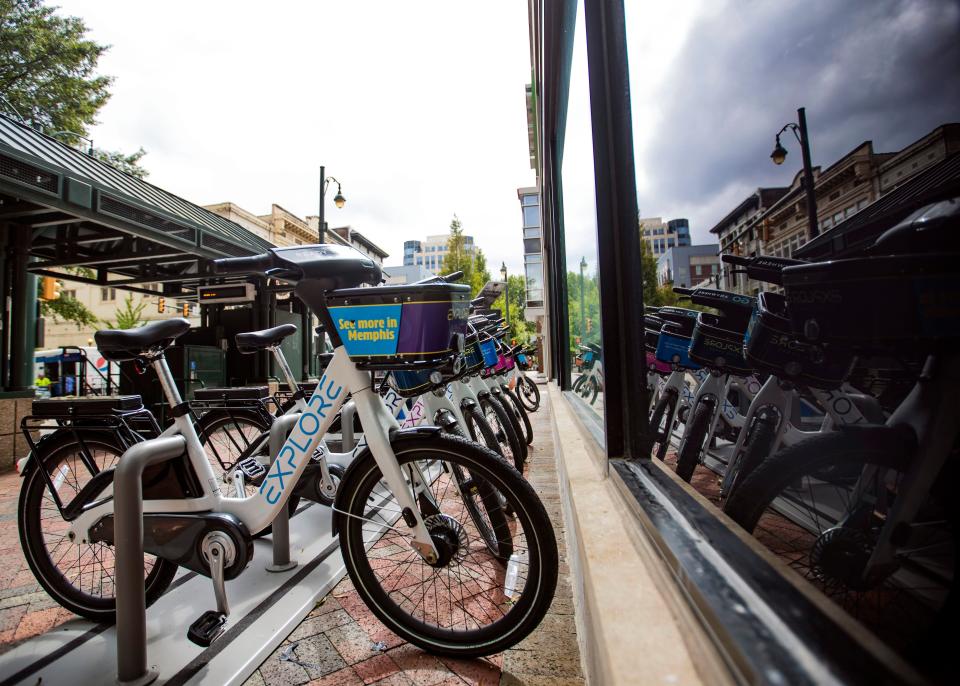
“[It’s a] two birds in one stone kind of approach that we can get them used to biking in Memphis and reintroduce biking, the people who have either not done it in a really long time, or have maybe never even learned,” Bermudez said. “So we're looking at adults here. We're thinking about people who might be interested in trying to commute or trying to ride for fun or pleasure.”
Bermudez said it’s well worth the short amount of time it takes learning to ride a bike, and not just for the practical benefits.
“People get a little nervous about not knowing how to ride a bike when they're an adult because they often feel like 'that's something I should have learned as a kid,'” she said. “But there's a lot of new confidence and excitement that comes from learning this skill in particular, and the freedom of being able to get on your bike and go, whether you're wanting to try commuting to work in the future, or just run an errand or go to a restaurant or bike with friends."
After successes in 2023, more classes with higher capacity are expected next year. The two-hour classes are free, and bikes are provided. Additionally, Memphis Hightailers offers bike riding classes for both adults and kids. Bikes and helmets are provided for adults, and kids must bring their own.
Why bike in the first place?
From physical health benefits and a lower carbon footprint to friendships created and the happiness that comes with riding a bike, passionate cyclists in Memphis are sure it’s worth the investment.
“The first that comes to mind is the health benefit,” Ezzell said. “When you ride a bike, you're doing a pretty serious cardio regiment, right, you're making your heart stronger, while also working on your legs, your lower body, and breathing in fresh air.”
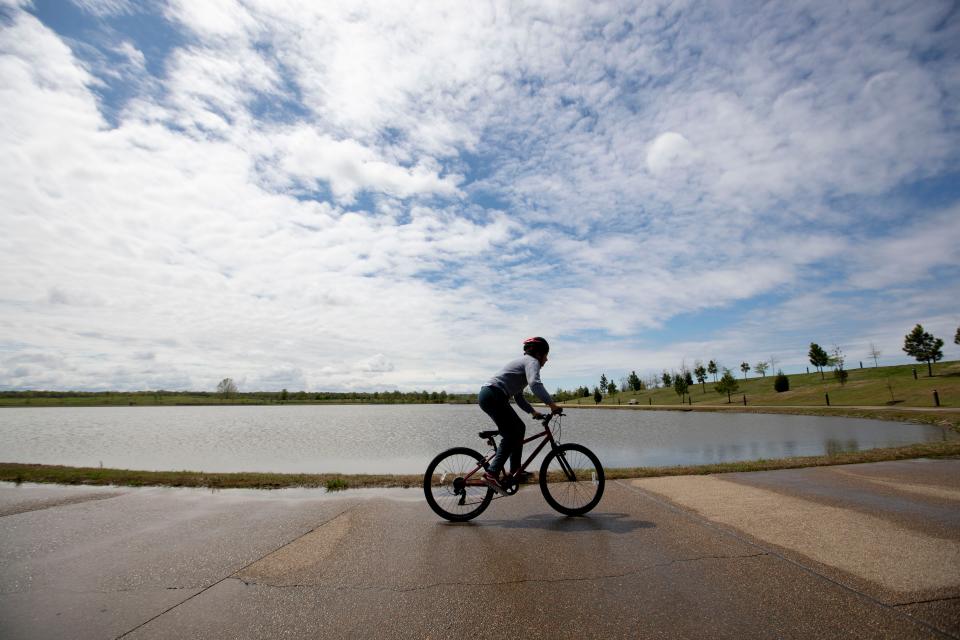
Some associate riding a bike with a feeling of freedom.
“Even if I'm riding by myself, I enjoy the feeling it gives,” Bertorini said. “And the camaraderie and the friendship — you make tons of friends riding bikes. It's one thing that a lot of people have in common.”
Bertorini encouraged those who haven't dusted off their bikes in a while to take it for a spin.
“If you've got a bike and it has been hanging in the garage, challenge yourself to get out there and ride once a day for 20 minutes,” he said. “You know, just get out there. Don't worry about going 20, 30 miles, get out there and just ride 20 minutes. Just have some fun.”
Butcher reiterated the companionship that comes with group rides. He said people from “every walk of life” meet, from high school students to a 76-year-old grandmother, teachers to trauma surgeons. Groups of over 200 cyclers are not an uncommon sight outside Victory.
"Most of them would never have met each other," he said. "And I mean… it tends to attract a quality human being is what I always say.”
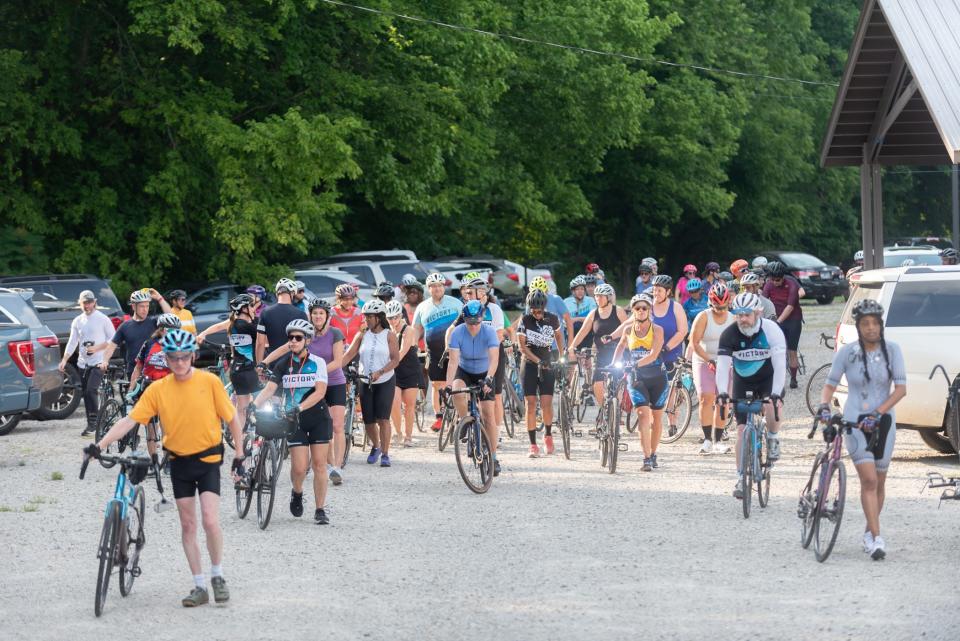
Despite the multitude of challenges the city and the cycling community face to improve safety, funding, accessibility and infrastructure, there seems to be universal agreement on one thing to grow cycling in Memphis: get out and ride a bike.
“Some of the most exciting stuff that I've seen over the years is, look how many women are riding? And look how many minorities are riding?” Butcher said. “Our training group now is over 60% female, and it's rapidly more diverse than it used to be.”
Butcher used Victory’s group rides to illustrate how cycling can spread across the city.
“Bike shops need to do something for the community,” he said. "If every shop did what we were doing, the sport in this city would grow insanely. It may sound cocky, but I also don't care… I encourage every other shop to do what I'm doing. Because if so the entire sport grows, the city grows.”
In addition to Hightailers and Victory, there are other cycling clubs and organizations in Memphis, such as Grind City Cycling Club, Black Girls Do Bike, Memphis Social Bicycle Club, and others.
“I love more people riding, love to see more volume of people walking and biking on the streets because that's how you increase safety ― visibility, volume and numbers,” Bermudez said. “Bike to your friend's house, or bike to the park. You don't have to start by doing the full-on commute to your office.”
Bertorini echoed the others’ positive sentiments but emphasized that collaboration is necessary if cycling is to grow.
“I personally think Memphis is pretty bike-friendly,” Bertorini said. “I just think that (we need to) get all the bike shops, all the bike clubs, all the bike teams, all the nonprofits to work together and kind of have one goal. I think we can get there. But I do think that the city needs to play a big role in that as well.”
This article originally appeared on Memphis Commercial Appeal: Cycling in Memphis: what can be done to make it safer, more accessible?

